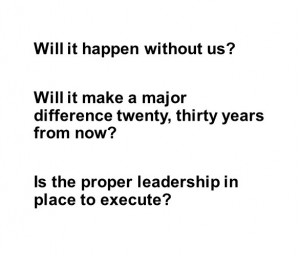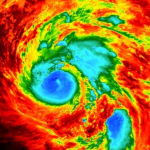Yitzhak Rabin: 1922 -1995
Published under Democracy and Freedom (or lack of), Global, Introspection, Israel, Leadership, Life, Loss, Middle East, OneVoice Movement, PeaceWorks Foundation Nov 06, 2017On Saturday night, Darkeu screened this video to tens of thousands of Israelis, gathered in Rabin Square, who watched in stunned silence. Twenty-two years ago to the day, at that very spot, Yitzhak Rabin was murdered after months of the sort of incitement, hate and violence that is once again rising in Israel. On Saturday, Israel’s moderate majority gathered in the square, united in determination to never again let extremists determine their country’s future.
Kids, Would You Please Start Fighting?
Published under Education/Raising Children, Family, Life, Students, Teachers Nov 06, 2017Sunday Review, The New York Times
By Adam Grant

I’m sharing an excellent piece by Adam Grant about the importance of teaching children how to have healthy disagreements, rather than shielding them from any discord. It is a salient point for child rearing, but also for creating a company culture where we prize healthy and hearty debate and learn to listen and think critically. At KIND, we strive to create a culture in which people are comfortable disagreeing with me – and with each other. We know that these debates are never personal, and they often help us arrive on the best solution for the team and company.
When Wilbur and Orville Wright finished their flight at Kitty Hawk, Americans celebrated the brotherly bond. The brothers had grown up playing together, they had been in the newspaper business together, they had built an airplane together. They even said they “thought together.” [Read more →]
A Time to Heal Our Country and Our Globe: Expanding Horizons at Scale
Published under Education/Raising Children, Family, Global, Innovation, Introspection, KIND, Kindness, Leadership, Life, New York City, Students, Teachers, United States Oct 18, 2017It never crossed my mind that an idea that began to take shape years ago to heal divisions among nations would be as urgently needed to bridge divides within our own country.
Today, I am proud to announce how Empatico will help address the major challenges that our nation and world face in terms of growing alienation, hatred, and the inability to listen to one another.
Fifteen years ago, as I was traveling across the Middle East and the world to build a grassroots Movement to amplify the voice of Israeli and Palestinian moderates, I was struck by a concern shared by everyone with whom I spoke. Each side felt that their people was misunderstood and mischaracterized. Tensions were at an all-time high, but it was clear that each group’s desire was similar: Muslim, Christian or Jew, Arab or Israeli, secular or religious, they wanted to tell their stories and where they were coming from. They wanted to be treated with dignity and respect. [Read more →]
Ellen Meets a 10-Year-Old Raising Money for Hearing Impaired
Published under Do the KIND Thing, Family, Kindness, Life Oct 13, 2017Talking about mental health after mass shootings is a cop-out
Published under Democracy and Freedom (or lack of), Health, Life, Loss, United States Oct 11, 2017By Fareed Zakaria, Thursday, Oct. 5, 2017
“He was a sick man, a demented man,” said President Trump, trying to explain the latest mass shooting in the United States. We hear this view expressed routinely, after every new incident. But it is a dodge, a distortion of the facts and a cop-out as to the necessary response.
There is no evidence that the Las Vegas shooter was insane. (I prefer not to use his name and give him publicity, even posthumously.) He did not have a history of mental illness that we know of, nor had he been reported for behavior that would suggest any such condition. He was clearly an evil man, or at least a man who did something truly evil. But evil is not crazy. If we define the attempt to take an innocent human being’s life as madness, then every murderer is mad. If not, we should recognize that it is a meaningless term that adds little to our understanding of the problem.
Actually, the quick assumption of mental illness distorts the discussion. First, it smears people who do have mental disorders. Such people are not inherently highly prone to violence. They are more often victims of violence than perpetrators. And to the extent that some are violent, they are more likely to inflict harm on themselves. Mental-health issues are correlated to suicides far more closely than they are to homicides. [Read more →]
Weighing a big decision? Here’s what experts say about when to go with your gut or your rational brain—or some combination of both.
By Elizabeth Bernstein
You have an important decision to make. You’ve done research, made a list of the pros and cons, asked friends and family for advice.
When should you just trust your gut?
Scientists, authors and motivational speakers (plus plenty of moms) have long touted the power of intuition—our mind’s ability to understand something without the need for conscious reasoning. Think of all the recommendations you’ve heard: “Put the problem away and come back to it later.” “Intuition doesn’t lie.” “Sleep on it.”
Many studies support this advice, showing that the decisions we make unconsciously, before our rational mind can get involved, are often better. But not always. [Read more →]
What We Know about the Climate Change–Hurricane Connection – Scientific American Blog Network
Published under Global, Weather Sep 14, 2017By Michael E. Mann, Thomas C. Peterson, Susan Joy Hassol
With Texas just beginning to recover from the devastation wrought by Hurricane Harvey and the Southeastern U.S. preparing for Hurricane Irma’s iminent arrival, people are naturally asking the question: What role might human-caused climate change be playing in all of this?
Scientists have been more than willing to weigh in on this question, but often with different perspectives on the data they should draw from, which has at times led to more confusion than edification. Part of the problem is that there are at least two fundamentally different ways of addressing this problem, and they reflect a different philosophical approach.
The first approach is to account for the simple physical processes at work and what role they may be playing. There are certain indisputable linkages that we can talk about immediately because they have already been vetted in general rather than for any specific storm. [Read more →]


















